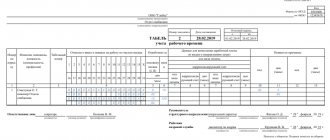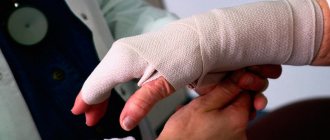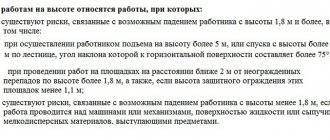Conditions for the benefit
Amounts paid by employers for the provision of medical services to their employees are not subject to personal income tax if they are transferred from funds remaining with the organization after paying income tax.
The source of payment is the first condition for exempting such income from personal income tax. In addition, to be exempt from personal income tax, it is necessary to comply with the conditions for paying expenses.
Let's return to the norm of the Tax Code of the Russian Federation. Although it may not be obvious, the deciding factor for the exemption is that the medical services must be paid for by the employer. The medical institution must receive company funds allocated specifically for medical services. The financiers also spoke about this in the letter dated December 3, 2018 No. 03-04-05/87037, which is referenced in the commented letter.
Decor
The procedure for completing documents for reimbursement of treatment costs depends on the order in which it was decided to compensate for such costs. For example, the company has a social package. This condition must be fixed (Articles 41, 57 of the Labor Code of the Russian Federation):
- in a collective agreement, if such compensation is due to all employees of the enterprise;
- in the employment contract, if compensation is provided only for some employees.
For one-time actions to pay for treatment, it is enough to issue an appropriate order from the general director or individual entrepreneur. Such an order is issued in response to an employee’s application . Documents confirming expenses must be attached to the application (letter of the Ministry of Finance dated April 13, 2007 No. 03-04-06-01/118). The legislation does not establish a specific list of documents. In practice, these can be contracts with medical organizations, certificates of treatment, checks confirming payment (letter of the Ministry of Finance dated July 26, 2008 No. 03-04-06-01/182).
Compensation is a violation
The Tax Code of the Russian Federation does not provide for such a form of payment for medical services as compensation to an employee for expenses incurred for medical purposes. That is, the company must either transfer money to the medical institution in a non-cash manner, or give it to the employee from the cash register or transfer it to a card. And the employee must pay the medical institution with the money received. If this procedure is followed, there is no need to pay personal income tax. That is, if the listed conditions are met, amounts of payment for medical services for employees are exempt from personal income tax. Otherwise, such income is subject to personal income tax in accordance with the general procedure.
Postings for the treatment of an employee at the expense of the organization
Login to the site Registration Login for registered users: Close Login via Previously, you logged in via Password recovery Registration Password recovery Forum Forum
Lilith (author of the question) 0 points, Volgograd March 31, 2011 at 11:17 am Changed at 11:37 am
| ||||||||||||||||||||||||||||||||
How to replace compensation
The Tax Code of the Russian Federation also provides for the exemption from personal income tax for income not exceeding 4,000 rubles per tax period in the form of amounts of material assistance to employees (clause 28 of Article 217 of the Tax Code of the Russian Federation). Financial assistance can be provided if the employee pays for his own treatment.
Financial assistance is exempt from taxation, regardless of the basis and sources of its payment.
But an amount exceeding 4,000 rubles is subject to personal income tax. And this is still better than withholding tax on the entire compensation amount. Insurance premiums will also have to be charged on the excess amount. Example.
Calculation of compensation for the cost of treatment in the form of financial assistance A company employee, having been discharged from the hospital, wrote an application to the accounting department with a request to reimburse him for the cost of treatment.
He paid 7,000 rubles from his own funds on the clinic’s account. The company decided to reimburse the employee for this amount, but only in the form of financial assistance. To do this, the employee was asked to rewrite the application for reimbursement of medical expenses with a request for financial assistance. The company pays contributions for insurance against industrial accidents and occupational diseases at a rate of 3.1%, and mandatory insurance contributions at a general rate of 30%. The accountant will make entries: Debit 91-2 Credit 70
- 7000 rub.
– financial assistance has been accrued to the employee; Debit 91-2 Credit 69-1-2
– 93 rub.
((RUB 7,000 – RUB 4,000) × 3.1%) – contributions for insurance against accidents and occupational diseases are assessed for an amount of financial assistance exceeding 4,000 rubles; Debit 91-2 Credit 69-1-1
– 900 rub.
((7000 rubles – 4000 rubles) × 30%) – insurance premiums are charged for the amount of financial assistance exceeding 4000 rubles; Debit 70 Credit 68, subaccount Personal income tax payments
– 390 rubles.
((RUB 7,000 – RUB 4,000) × 13%) – personal income tax is withheld from the amount of financial assistance exceeding RUB 4,000; Debit 70 Credit 51
– 6610 rub. (7000 – 390) – financial assistance is transferred to the employee.
How to get money back for treatment
Every officially working citizen of the Russian Federation has the right to receive partial compensation from the state for funds spent:
- for paid medical services,
- medical rehabilitation and
- purchase of medicines.
Medical organizations participating in the implementation of the program of state guarantees of free medical care to citizens within the framework of the basic compulsory medical insurance program or the territorial compulsory medical insurance program have the right to provide the following paid medical services:
- medical care on conditions other than those provided for in the basic compulsory medical insurance program or the territorial compulsory medical insurance program, at the request of the patient, including but not limited to:
establishment of an individual medical observation post during treatment in a hospital setting;
- the use of medications that are not included in the list of vital and essential medications, if their prescription and use is not due to vital indications or replacement due to individual intolerance to medications, as well as the use of medical devices, medical nutrition, including specialized medical nutrition products not provided for by the standards of medical care;
Treatment costs can be partially compensated by providing a social tax deduction for the costs of treatment and/or the purchase of medicines (tax deduction for treatment).
Who is entitled to compensation for treatment?
To receive partial compensation from the state for funds spent on treatment, you must:
- be a citizen of the Russian Federation and have resident status, that is, stay on the territory of the Russian Federation for more than 183 days ;
- be officially employed on the basis of an employment agreement or contract or have income on which income tax is paid:
for example, renting out an apartment, the rent for which is taxable;
- Monthly contributions are made by the employer.
Social tax deduction for expenses for treatment and/or purchase of medicines
A social tax deduction for treatment is provided to a taxpayer who has paid at his own expense for:
- services for your treatment;
- treatment services for your spouse, your parents and/or your children under the age of 18;
- medications prescribed to the taxpayer or his spouse, parents and/or children under the age of 18 by the attending physician and purchased at his own expense;
- insurance premiums to medical insurance companies under voluntary medical insurance (VHI) contracts of the taxpayer, insurance contracts for a spouse, parents and/or their children under the age of 18.
The procedure for providing a social tax deduction for treatment is determined by clause 3 of Article 219 “Social tax deductions” of the Tax Code of the Russian Federation.
Lists of medical services and medicines for which payment is provided with a tax deduction for treatment
Lists of medical services and medicines, for which payment a social tax deduction is provided for the costs of treatment and/or purchase of medicines:
- approved by Decree of the Government of the Russian Federation dated March 19, 2001 No. 201 (as amended on June 26, 2007) “On approval of lists of medical services and expensive types of treatment in medical institutions of the Russian Federation, medicines, the amounts of payment for which from the taxpayer’s own funds are taken into account when determining amount of social tax deduction.”
List of medical services
in medical organizations of the Russian Federation provided to the taxpayer, his spouse, his parents and/or his children under the age of 18, the amounts of payment for which at the expense of the taxpayer’s own funds are taken into account when determining the amount of social tax deduction for treatment:
| Diagnostic and treatment services when providing emergency medical care to the population |
| Services for diagnosis, prevention, treatment and medical rehabilitation in the provision of outpatient medical care to the population (including in day hospitals and by general (family) practice doctors), including medical examination |
| Services for diagnosis, prevention, treatment and medical rehabilitation when providing inpatient medical care to the population (including in day hospitals), including medical examination |
| Services for diagnosis, prevention, treatment and medical rehabilitation when providing medical care to the population in sanatorium and resort institutions. According to the letter of the Ministry of Health of the Russian Federation dated November 1, 2001 No. 2510/11153-01-23, this item of this List applies to part of the cost of the voucher, which corresponds to the amount of medical care provided to an individual in a sanatorium-resort institution during the stay |
| Health education services provided to the public. |
List of medicines,
prescribed by the attending physician to the taxpayer and purchased by him at his own expense, the amount of which is taken into account when determining the amount of social tax deduction for treatment:
| Anesthetics and muscle relaxants: | Anesthetic agents Local anesthetics Muscle relaxants |
| Analgesics, non-steroidal anti-inflammatory drugs, drugs for the treatment of rheumatic diseases and gout: | Narcotic analgesics Drugs for the treatment of gout Other drugs (colchicine, penicillamine) |
| Medicines used to treat allergic reactions: | Antihistamines |
| Drugs affecting the central nervous system: | Anticonvulsants Drugs for the treatment of parkinsonism Sedatives and anxiolytics, drugs for the treatment of psychotic disorders Antidepressants and normothimics Drugs for the treatment of sleep disorders Drugs for the treatment of multiple sclerosis Drugs for the treatment of alcoholism and drug addiction Anticholinesterase drugs Other drugs affecting the central nervous system |
| Means for the prevention and treatment of infections: | Antibacterial agents Antituberculosis agents Antiviral agents Antifungal agents Antiprotozoal and antimalarial agents Vaccines and serums |
| Antitumor, immunosuppressive and related drugs: | Cytostatic drugs Hormones and antihormones Concomitant drugs |
| Drugs for the treatment of osteoporosis: | Osteogenesis stimulants |
| Drugs affecting blood: | Antianemic drugs Drugs affecting the blood coagulation system Solutions and plasma substitutes Plasma preparations Lipid-lowering drugs |
| Drugs affecting the cardiovascular system: | Antianginal drugs Antiarrhythmic drugs Antihypertensive drugs Drugs for the treatment of heart failure Vasopressor drugs |
| Diagnostic tools: | X-ray contrast agents Fluorescent agents Radioisotope agents |
| Antiseptics and disinfectants: | Antiseptics Disinfectants |
| Means for the treatment of diseases of the gastrointestinal tract: | Antacids and other antiulcer drugs Antispasmodics Pancreatic enzymes Drugs for the treatment of liver failure Antienzymes |
| Hormones and agents affecting the endocrine system: | Non-sex hormones, synthetic substances and antihormones Androgens Estrogens Insulin and drugs used for diabetes mellitus |
| Medicines for the treatment of kidney and urinary tract diseases: | Drugs for the treatment of prostate adenoma Drugs for the treatment of renal failure and organ transplantation Diuretics |
| Medicines used for ophthalmological diseases, not indicated in other sections: | Anti-inflammatory drugs Miotic drugs and drugs for the treatment of glaucoma Regeneration stimulators and retinoprotectors |
| Drugs affecting the uterus: | Hormonal agents that affect the muscles of the uterus Other drugs that affect the muscles of the uterus |
| Drugs affecting the respiratory system: | Antiasthmatic drugs Other drugs for the treatment of respiratory diseases not listed in other sections |
| Solutions, electrolytes, means for correcting acid balance, nutrition: | Nutrient mixtures Electrolytes, acid balance correction agents |
| Vitamins and minerals: | Vitamins Menadione Thiamine |
List of expensive treatments
in medical organizations of the Russian Federation, the amount of expenses actually incurred by the taxpayer are taken into account when determining the amount of social tax deduction for treatment:
| Surgical treatment of congenital anomalies (developmental defects) |
| Surgical treatment of severe forms of circulatory system diseases, including operations using artificial blood circulation machines, laser technologies and coronary angiography. |
| Surgical treatment of severe forms of respiratory diseases. |
| Surgical treatment of severe forms of diseases and combined pathologies of the eye and its appendages, including the use of endolaser technologies. |
| Surgical treatment of severe forms of nervous system diseases, including microneurosurgical and endovasal interventions. |
| Surgical treatment of complicated forms of diseases of the digestive system. |
| Endoprosthetics and reconstructive operations on joints. |
| Transplantation of organs (complex of organs), tissues and bone marrow. |
| Replantation, implantation of prostheses, metal structures, pacemakers and electrodes. |
| Reconstructive, plastic and reconstructive plastic surgeries. |
| Therapeutic treatment of chromosomal disorders and hereditary diseases. |
| Therapeutic treatment of malignant neoplasms of the thyroid gland and other endocrine glands, including the use of proton therapy. |
| Therapeutic treatment of acute inflammatory polyneuropathies and complications of myasthenia gravis. |
| Therapeutic treatment of systemic connective tissue lesions. |
| Therapeutic treatment of severe forms of diseases of the circulatory, respiratory and digestive organs in children. |
| Combined treatment of pancreatic diseases. |
| Combined treatment of malignant neoplasms. |
| Combined treatment of hereditary bleeding disorders and aplastic anemia. |
| Combined treatment of osteomyelitis. |
| Combined treatment of conditions associated with complicated pregnancy, childbirth and the postpartum period. |
| Combined treatment of complicated forms of diabetes mellitus. |
| Combined treatment of hereditary diseases. |
| Combined treatment of severe forms of diseases and combined pathologies of the eye and its adnexa. |
| Complex treatment of burns with a body surface area of 30 percent or more. |
| Types of treatment associated with the use of hemo- and peritoneal dialysis. |
| Nursing premature babies weighing up to 1.5 kg. |
| Treatment of infertility using in vitro fertilization, cultivation and intrauterine embryo insertion. |
Amount of tax deduction for treatment
Maximum spend amount:
- for treatment and/or purchase of medicines,
- in conjunction with his other expenses related to training,
- payment of contributions to the funded part of the labor pension,
- voluntary pension insurance and
- non-state pension provision
120,000 rubles.
The amount of tax deduction for treatment is not limited to any limits and is presented in full:
- if the taxpayer spent money on expensive medical services;
- It is possible to determine whether the treatment from the List of medical services and medicines for which a tax deduction for treatment is provided is considered expensive by the code of the medical services provided by the medical organization, which were paid for at the expense of the taxpayer, indicated in the “Certificate of payment for medical services for submission to tax authorities":
code “1” – treatment is not expensive;
- code “2” – expensive treatment.
The procedure for obtaining a tax deduction for treatment
To receive a social tax deduction for expenses for treatment and/or purchase of medicines, the taxpayer must:
- fill out a tax return in form 3-NDFL at the end of the year in which payment for treatment was made and/or medicines were purchased;
- obtain a certificate from the accounting department at the place of work on the amounts of accrued and withheld taxes for the corresponding year in form 2-NDFL;
- prepare copies of documents confirming the degree of relationship with the person for whom treatment or purchase of medicines was paid:
birth certificate of the child (children), if the taxpayer paid for treatment or the purchase of medicines for his child (children) under the age of 18;
- marriage certificate, if the taxpayer paid for treatment or the purchase of medicines for a spouse;
- birth certificate of the taxpayer, if he paid for treatment or purchase of medicines for the parent(s);
- contracts with a medical institution for the provision of medical services;
To receive a tax deduction for treatment under a VHI agreement, you need copies of:
- voluntary medical insurance contracts or voluntary medical insurance policies;
- cash receipts or receipts for insurance premiums (contributions).
To receive a tax deduction for the purchase of medicines, you need copies of:
- the original prescription form with the prescription of medicines in the prescribed form with the o,
- copies of payment documents confirming the fact of payment for prescribed medicines.
Obtaining a social tax deduction for treatment when applying to an employer
You can receive a social tax deduction for treatment before the end of the tax period by contacting your employer, having previously confirmed this right with the tax authority.
To do this, the taxpayer must:
- write an application to receive a notification from the tax authority about the right to a social tax deduction for treatment;
- prepare copies of documents confirming the right to receive a social tax deduction for treatment;
- submit an application to the tax authority at your place of residence to receive notification of the right to a social tax deduction for treatment, attaching copies of documents confirming this right;
- after 30 days, receive from the tax authority a notification of the right to a social tax deduction for treatment;
- provide a notice issued by the tax authority to the employer, which will be the basis for not withholding personal income tax from the amount of income paid to an individual until the end of the year.
When submitting copies of documents confirming the right to a social tax deduction for treatment to the tax authority, you must:
- have their originals with you for verification by a tax inspector;
- payment documents must be issued to the person with whom the treatment agreement was concluded, and not to the person for whom the treatment was paid.








